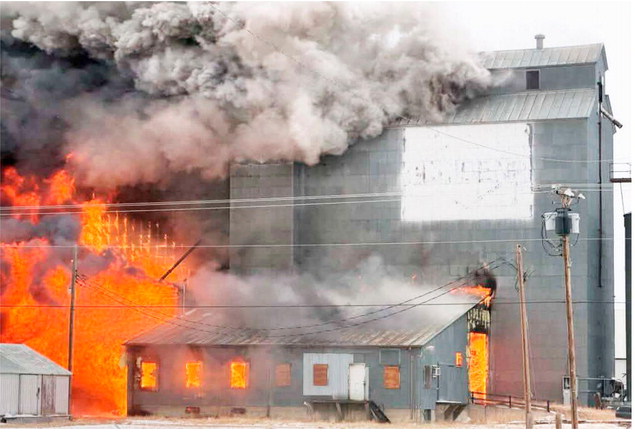Child Removal Reforms Advance In Montana
State lawmakers on a health and human services interim committee voted Friday, Aug. 26, to advance a bill that, if passed by the Legislature next year and eventually signed into law by the governor, would reform Montana’s child welfare system and limit the circumstances where the state can remove children from their homes.
The decision came despite pushback from officials with the state attorney general’s office, the state health department, the Montana County Attorneys Association, and some Democratic lawmakers. Opponents expressed concerns that the changes wouldn’t improve the child welfare system and might instead put children at risk by keeping them in potentially abusive and neglectful households.
All five Republicans and one of five Democrats on the committee voted to adopt the bill proposal, saying it would help protect the legal rights of parents and children and limit the instances of non-emergency child removals. Interim committees are bipartisan groups that study issues between the Legislature’s every-other-year sessions and propose legislation for consideration by the full, partisan House and Senate.
If the bill becomes law, the state health department’s Child Protective Services (CPS) program would be required to receive a judicial warrant before taking a child out of their home in most cases. Additionally, the bill would mandate all children in abuse and neglect cases would be represented by legal counsel and would require district courts to hold a first-appearance hearing with the family, health department and prosecutors within 72 hours of a child’s removal.
The bill would also prohib- it a child’s removal solely on the basis of parental substance use, disorderly living conditions, economic status or childhood obesity.
That more narrow definition of “neglect,” particularly as it relates to parental drug or alcohol use, received strong pushback from multiple state child welfare officials.
Montana Department of Justice Special Services Bureau Chief Dana Toole, who oversees the state’s Child and Family Ombudsman Program, testified that more than half of the children who died in 2021 after CPS involvement were infants. Toole said drug and alcohol use was an indicator of abuse and neglect in at least six of those cases.
“When there are drugs or alcohol, substance abuse disorders or drugs available and accessible in a home where there is an infant … parenting is impaired,” Toole said. “I am concerned that changes in code about decisions to remove infants could increase child fatalities in Montana.”
State health department officials also testified against the bill, particularly because of the requirement for CPS workers to obtain a judicial warrant for removing children in most cases. The bill would allow warrantless removals in cases where “the child is likely to experience sexual abuse or serious bodily injury” in the length of time it would take for workers to get a warrant.
Requiring warrants in most circumstances, health department staff said, would be a burden on child welfare caseworkers who sometimes need to act swiftly to separate children from parents.
“The reality [is] most emergency removals are necessary for a parent being unavailable to parent and having no other safe caregiver in the home. Often they’re being arrested, or so out of control it’s unsafe for the children and others to be around that parent,” said Nikki Grossberg, administrator of the Child and Family Services Division. “By requiring a warrant in these situations, this puts an unnecessary burden on a system to request to remove a child when there’s no parent available to provide that warrant to.”
Some committee members, including the bill’s primary drafter Rep. Danny Tenenbaum, D-Missoula, said the warrant requirement and the inclusion of legal counsel for children were necessary reforms to bring Montana in line with the constitutional right to due process under the law.
In an exchange with state health department attorney Chad Parker, Tenenbaum read the legal standard from a 2018 court ruling from the U.S. Court of Appeals for the 9th Circuit.
“It is a requirement of the Fourth Amendment that children may not be removed from their homes without a court order or warrant absent cogent, fact-focused, probable cause to believe that children would be imminently subject to physical injury or physical sexual abuse,” Tenenbaum read. “That is what the Constitution requires, and that is the standard that this bill incorporates to a tee. Is it the department’s position that this isn’t the standard that they need to abide by?”
Parker said the agency’s current practices are in compliance with the Fourth Amendment, but that the language proposed bill does not account for all of the risks that could be considered ‘imminent harm.’ “We believe that it does not allow, as I’ve stated, for all the circumstances under which a child removal would be required if there is imminent harm,” Parker said. “There’s a whole wide scope of imminent harm that our interpretation indicates is not covered by the restrictive language [in the bill draft].”
Committee Chairman and Rep. Ed Stafman, D-Bozeman, tried to address the department’s concerns by proposing an amendment that would broaden the opportunities for warrantless removals in order to give the child protection caseworkers more flexibility.
“It’s not a one size fits all world,” said Stafman. “We have to give them enough discretion to do their job.”
Stafman’s amendment failed after receiving opposition from the committee’s five Republicans and two Democrats. One of those opponents was Rep. Dennis Lenz, R-Billings, who said a more permissive removal statute would be contradictory to the purpose of limiting childhood removals from the home.
“What we’re trying to say is that we want to be removing for something serious,” Lenz said. “That’s how I’m taking this. And I’m resistant to expanding that.”
Despite long study periods and bipartisan support, bills devised by the legislative interim committees often face headwinds when the regular session gets underway. Lenz said as much in his comments about the proposed child welfare bill, calling it a “good start” for future debates.

